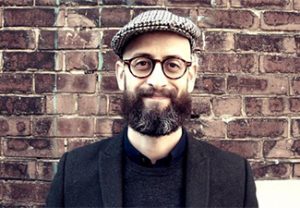
- This event has passed.
Kant & Post-Kantian German Philosophy Group Talk (G. Anthony Bruno, Royal Holloway)
Friday October 9, 2020, 12:00 pm - 2:00 pm
Event Navigation

The Kant & Post-Kantian German Philosophy Research Interest Group is pleased to welcome as a speaker G. Anthony Bruno, an assistant professor in Philosophy at Royal Holloway University of London. His research focuses on metaphysics and epistemology in early modern, Kantian, and post-Kantian philosophy. He is particularly interested in transcendental idealism and its relation to skepticism, the limitations of transcendental deduction, the systematic and historical connection between transcendental logic and facticity, and the pressure that nihilism exerts on concepts of freedom, nature, mortality, and value. With Andrew Cooper, he directs the London Post-Kantian Seminar, an AHRC-funded workshop series showcasing new work in post-Kantian thought across universities in London. In 2019, Dr. Bruno was an Alexander von Humboldt Alumni Fellow at the University of Tübingen and an Experienced Research Fellow at the Forschungskolleg Analytic German Idealism at the University of Leipzig.
Talk Title
Negative Philosophy: Schelling on Hegel’s Factical Presuppositions
Talk Abstract
In his Berlin lectures, Schelling mounts an internal critique of German idealism, one that is sympathetic to its systematic aims yet corrects the confinement of those aims to ‘negative philosophy.’ Negative philosophy is a science of the conditions and, ultimately, the first principle of the intelligibility of existence. Such a principle is meant to render existence systematically intelligible or rational without remainder. But Schelling observes that existence constitutes this principle’s remainder, for it cannot be in virtue of a principle alone that there is any existence to render intelligible: ‘there could be nothing.’ To resolve this issue, he enlists the help of ‘positive philosophy.’ Positive philosophy is a science that begins from the fact of existence and progresses toward the proof of the application or reality of its first principle. But Schelling recognizes that such a proof faces the bruteness of existence, which is absurd absent a rational principle: ‘why is there not nothing?’ He concludes that negative and positive philosophy are reciprocally dependent sciences, i.e., that rendering existence rational and proving a principle’s reality are the individually insufficient and jointly necessary elements of systematic cognition. To rephrase a Kantian slogan: a first principle without existence is empty; existence without a first principle is blind. Arriving at this conclusion requires, Schelling says, a ‘return to Kant.’ What insight does Kant offer into the limitations of negative philosophy and how does he point toward the need for its cooperation with positive philosophy? I answer these questions through an analysis of Kant’s doctrine of the epistemic reciprocity between the categories and sense experience, a discussion of Kant’s threefold criterion of proof, and an account of Maimon’s empty formalism challenge, which impacts Schelling’s early work. With these answers in view, I then reconstruct Schelling’s argument in Berlin that Hegel’s negative philosophy presupposes positive philosophy on pain of empty formalism.
This will be a discussion of a pre-circulated paper. The paper will be made available to those interested a week in advance of the event; please contact David Suarez for a copy.
The Kant & Post-Kantian German Idealism Group is a a subgroup of the History of Philosophy Research Group, which focuses on European philosophy in Kant and post-Kantian traditions.
SHARE